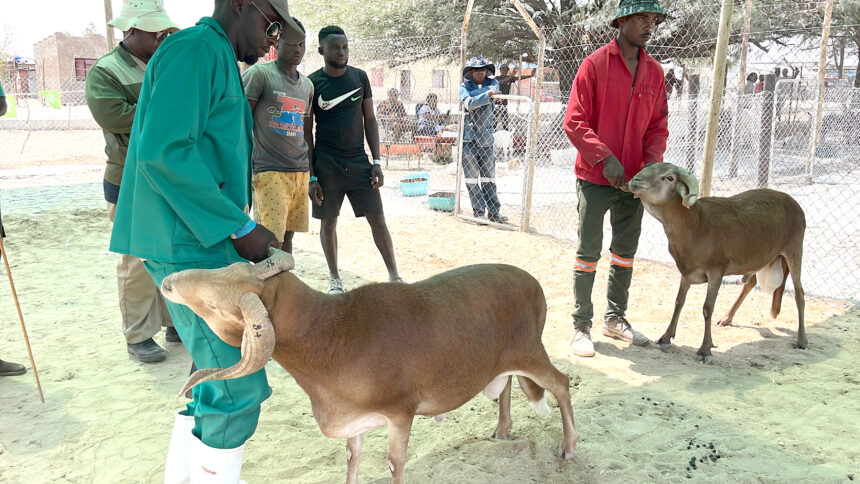KARIBIB – As drought continues to wreak havoc countrywide, farmers are compelled to adapt to the changing climate and find innovative ways to cope with its impacts.
The harsh reality of limited rainfall has forced many farmers in the Erongo region to rethink their strategies, fostering resilience in the face of adversity.
Frans Kandundu, affectionately known as Bokke, is a small-stock farmer operating from a resettlement farm behind Otjiwarongo.
For Bokke, farming is a family legacy, rooted in generations of agricultural practice.
“Farming is in the blood: my dad is a farmer, and my grandfather was a farmer,” he said.
Despite the challenges posed by drought, he emphasises the importance of planning and making provision.
“You cannot cry because of the drought. You just have to make provision for it,” he stated.
He said he had to employ various strategies to mitigate the effects of drought.
It is important for farmers to plan for the unforeseen to avoid suffering when drought hits.
“I reduced my livestock numbers, and I actively engage in rotational grazing. This has been tremendously helpful, and has allowed me to keep going during the tough times,” he shared.
Another farmer from Erongo, Gerhard Kamayova, said one of the biggest challenges they are experiencing is the lack of grazing.
He said he was forced to move his cattle to Okahandja in search of better pastures.
In response to the crisis, he has planted lucerne and beans on a small plot acquired from the municipality.
“This has helped me supplement the feed for my animals. There is a need for farmers to collaborate to share ideas and learn from one another,” he remarked.
Elton Gurirab, a renowned stud farmer from Okombahe, underscored the need for careful planning.
“Farming is just a management process,” he stated.
He said he is not affected by drought, as he has drilled boreholes and created small camps for his livestock, enabling him to manage his farm effectively despite the limited resources available.
He emphasised the necessity of reinvesting profits into farming to ensure long-term sustainability.
“The government’s role in supporting farmers during these challenging times is also vital – but we, as farmers, should plan for these things. We should rather sell some of our cattle and other livestock way in advance, and keep a small amount at least until conditions are better,” he said.
Sebulon Ganinab, a representative of the agriculture ministry in Erongo, noted that although drought conditions are difficult, many farmers are well-prepared, and have managed their livestock effectively.
“Our mandate is to inform the farmers about government programmes that are aimed to improve farmers› livelihoods, especially during challenging times,” he said.
He acknowledged that not all farmers are aware of the available resources, and more needs to be done to ensure that information reaches all farmers.
Govt interventions
The government, through the agriculture ministry, is currently rendering support to farmers via a drought scheme.
The scheme, which started in August this year, complements existing government programmes, such as the Dryland Crop Production Programme (DCPP), and the Namibia Agricultural Mechanisation and Seed Improvement Project (NAMSIP).
Under these initiatives, the line ministry procures seeds and fertiliser, and distributes them to agricultural development centres at subsidised prices.
Farmers are eligible for up to 100 kilogrammes (kg) of maize seeds, or 20kg of pearl millet or sorghum seeds to plant five hectares.
Additionally, 25kg of cowpeas and/or groundnuts will be available for intercropping, with other seeds like lucerne and blue buffalo grass offered at subsidised rates.
Since April, the government has provided livestock marketing incentives, offering subsidies of up to N$750 per large stock unit and N$150 per small stock unit, capped at N$56 250 per farmer.
Additionally, the ministry has allocated N$100 million for borehole rehabilitation, waterpoint installation and the expansion of water infrastructure, including pipelines and dams for water harvesting countrywide.
– edeklerk@nepc.com.na



